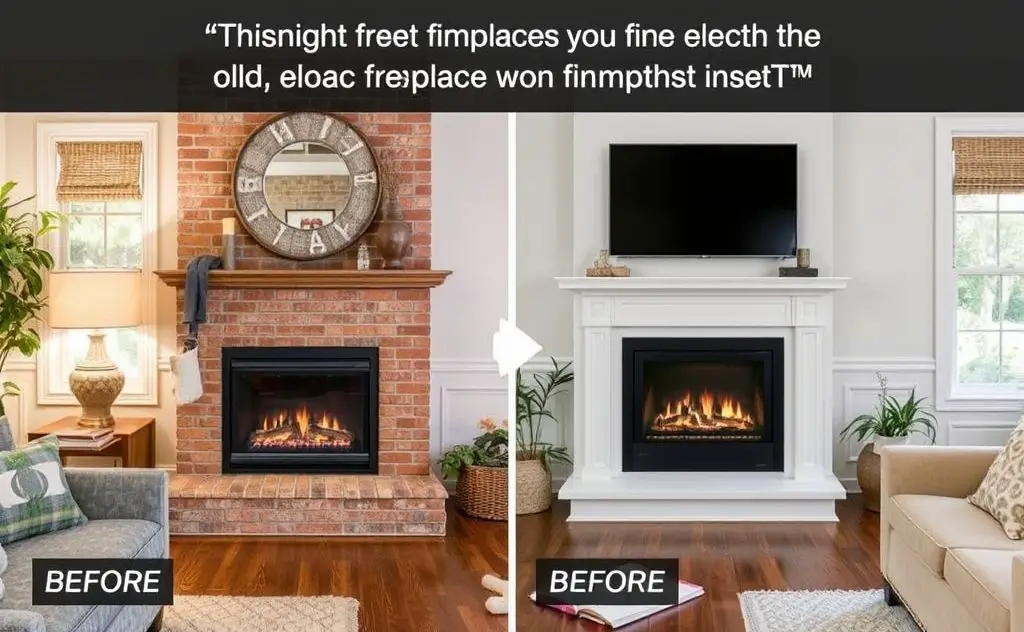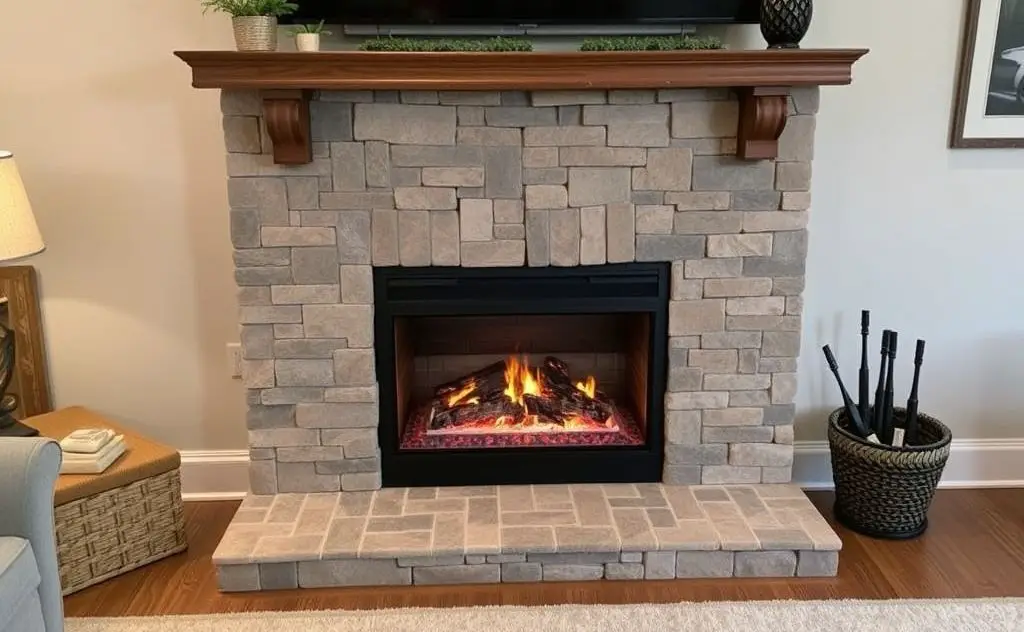To install an electric fireplace in an existing fireplace, first remove any debris or old components, then ensure proper electrical connections, secure the electric unit inside the fireplace, and follow the manufacturer’s instructions for finishing touches and safety checks.
Converting your traditional fireplace to an electric model is a smart upgrade. It provides warmth without the hassle of wood or gas. This guide covers everything from safety checks to final trim installation.

Pre-Installation Preparation
Proper preparation ensures a smooth installation process. Follow these steps before inserting your electric unit.
1. Clean the Fireplace
Remove all ash, debris, and soot from your existing fireplace. Use a vacuum for thorough cleaning. Check for any structural damage that might affect installation.
2. Seal the Chimney
Install a chimney cap if missing. This prevents water intrusion and drafts. Close and seal the damper completely to retain heat. Use high-temperature silicone sealant for best results.
3. Check Electrical Requirements
Most electric fireplaces need a standard 120V outlet. If your fireplace lacks nearby power:
- Hire a licensed electrician for outlet installation
- Consider a dedicated circuit for larger units
- Never use extension cords permanently

Installation Process
Follow these steps for safe and proper installation of your electric fireplace insert.
1. Test the Unit First
Plug in the fireplace before installation. Verify all functions work properly:
- Flame effects
- Heating element
- Remote control (if included)
2. Position the Insert
Slide the firebox into the opening carefully. Maintain proper clearances:
| Area | Minimum Clearance |
|---|---|
| Top to combustible materials | 3/8 inch |
| Sides to walls | 1 inch |
| Top to mantel | 2 inches |
3. Secure the Unit
Use included brackets to anchor the insert. Some models require:
- Side mounting screws
- Floor anchors
- Rear support brackets
Finishing Touches
Complete the installation with these professional finishing steps.
1. Install Trim Kit
Most inserts include decorative trim. Options include:
- Brushed metal surrounds
- Glass panel frames
- Custom wood mantels
2. Hide Wiring
For a clean look:
- Use paintable wire channels
- Install in-wall cable management
- Consider a recessed outlet box
Safety Considerations
Electric fireplaces are safer than traditional options, but precautions remain important.
Clearance Requirements
Maintain proper distances from combustible materials. Refer to your specific model’s manual for exact specifications. Some units may require more space than the standard guidelines.
Electrical Safety
Never overload circuits. If you experience frequent tripping, consult an electrician about installing a dedicated circuit. For more on electrical safety, see our guide on why space heaters trip breakers.
Child and Pet Protection
Consider adding:
- Safety gates for toddlers
- Heat-resistant barriers for pets
- Secure mounting for freestanding units
Maintenance Tips
Keep your electric fireplace performing optimally with simple care.
Regular Cleaning
Dust the unit weekly with a microfiber cloth. Clean glass panels with vinegar solution. Vacuum vents monthly to prevent dust buildup.
Component Checks
Inspect annually:
- Power cord for damage
- Heating elements for debris
- LED lights for proper function
Troubleshooting
Common issues and solutions:
- No power – Check circuit breaker
- No heat – Verify thermostat settings
- Flickering lights – Contact manufacturer
For more troubleshooting help, see our article on fixing E3 errors on electric fireplaces.
Enhancing Your Electric Fireplace
Take your installation to the next level with these professional touches.
Decorative Options
Consider adding:
- Realistic log sets
- Crystal or glass ember beds
- Custom surround mantels
Smart Features
Modern options include:
- Wi-Fi enabled thermostats
- Voice control compatibility
- Programmable timers
Energy Efficiency
Maximize savings by:
- Using zone heating
- Setting optimal temperatures
- Using flame-only mode for ambiance
For more on efficient heating, read our comparison of oil-filled radiators vs electric heaters.
Professional installation resources:
